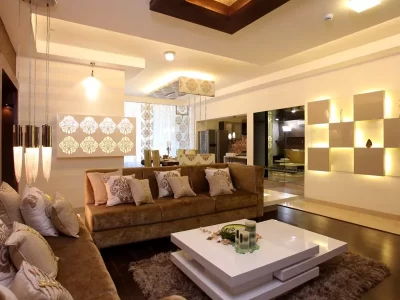The psychological adjustment to condominium living involves more than just downsizing possessions—it requires a fundamental shift in how you perceive personal space and community boundaries. When touring developments like the Skye At Holland Showflat, prospective buyers often focus on finishes and floor plans while overlooking the mental preparation needed for successful shared-wall living. This transition demands specific psychological adaptations that can determine whether you thrive or struggle in your new environment.
Noise tolerance
Your ability to mentally process ambient sounds from neighbours significantly impacts your satisfaction in condominium living. Some individuals possess natural resilience to occasional footsteps overhead or muffled conversations next door, while others find these sounds deeply intrusive and stress-inducing. This variation stems partly from neurological differences in how our brains process sensory input and partly from our personal histories and expectations around residential environments. Before committing to shared-wall living, honestly assess your reactions to uncontrollable sounds. Pay attention to how you respond to noise in hotels, apartments, or public spaces. If you fixate on or become agitated by routine sounds, you may need to develop coping strategies or consider buildings with enhanced soundproofing. Noise-cancelling headphones, white noise machines, and mindfulness practices can help sensitive individuals adapt, but recognising your baseline sensitivity is an essential first step.
Boundary flexibility
Successful condominium residents develop nuanced approaches to personal boundaries that differ from those in single-family homes. This involves maintaining clear psychological divisions where necessary while embracing certain communal aspects of shared living. Common areas in condominiums function as extensions of your personal space while simultaneously belonging to everyone. This dual nature requires a mental flexibility about ownership and territory that some find challenging. Similarly, decisions about shared spaces, building policies, and community standards become shared rather than individual, requiring psychological comfort with collaborative decision-making processes.
Privacy recalibration
The concept of privacy takes on different dimensions in shared-wall environments. Consider whether you can adjust to:
- Neighbours potentially knowing your comings and goings
- Maintenance staff accessing your unit for building-wide systems
- Community oversight of exterior modifications
- Shared knowledge about personal disputes or issues
This recalibration doesn’t mean surrendering privacy entirely, but instead developing a more layered understanding of what privacy means in a community context. Most happy condo residents establish clear personal boundaries while accepting specific reductions in absolute privacy as a fair trade for the benefits of community living.
Conflict approach
Your natural tendencies in handling interpersonal friction will significantly influence your condominium experience. Those who avoid conflict at all costs may find themselves silently suffering through situations that could be easily resolved. Conversely, those who engage confrontationally with every minor issue risk becoming isolated within their community.
- Identify your default conflict style (avoidant, accommodating, competitive, collaborative)
- Consider how this style might function in close-quarter living
- Develop strategies to adapt your approach when necessary
- Practice direct but respectful communication about concerns
The healthiest approach combines assertiveness about legitimate concerns with flexibility on minor issues, allowing you to address problems without creating unnecessary tension.
The psychological readiness for condominium living often determines satisfaction more than physical features or amenities. By assessing your noise tolerance, boundary flexibility, privacy needs, conflict approach, and community mindset before purchasing, you position yourself for a more harmonious transition to shared-wall living.












Comments